2012
Classic Fall Reading | What’s next on your list?
Uncategorized | by Pastor Adam Sinnett
A new season brings new opportunities – and new books. Well, in this case, old books. As we head into the fall I want to recommend a number of oldies-but-goodies to anyone that happens to be considering what’s next on their reading list. I love CS Lewis’ comments on the importance of old books, particularly in light of the multitude of modern books being published today, in his introduction to Athanasius’ On the Incarnation. You can find the full intro here. Here is an excerpt:
I recommend creating a balance in your reading diet, particulary when it comes to the era in which books were written. For me, I try to read 2-3 books by dead guys for every book I read by a modern author. Why? Well, because old books have been proven by the test of time and modern books are still on trial, as Lewis puts it. If you want to invest your time well, make sure your reading includes some of the classics.
A Preliminary Recommendation.
I’ve spoken with a number of you who have mentioned that, “I am not a reader.” Unfortunately it is often stated in the same way someone would say, “I have one head and there is no changing that.” That’s not true. Readers are not necessarily born, they are created and cultivated. Of course, if you’re not a reader, you’re probably not reading this. But, if you are, I hope that is encouraging. For readers and not-yet-readers alike, I highly recommend Lit: A Christian Guide to Reading Books. It makes some of the most helpful content from this classic book much more accessible. You will be surprised how helpful reading a book on reading could be. He also provides some really practical help on how to fit reading in to an already busy schedule. You want this book.
Classic Fall Reading.
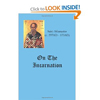
This is easily in my top 10 favorite books of all time. The translation that includes the introduction by CS Lewis is worth the read alone. It is incredibly faith stirring to read Athanaisius defend the full humanity and full divinity of Jesus as such an early, and crucial, stage of the early church. Super accessible.
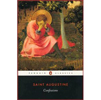
This would be in my top five favorite books of all time. It’s a little more of a demanding read, but well worth it. The entire book is Augustine’s autobiography written in the form of a prayer back to God. It’s like getting to eaves drop on Augustine praying. Stunning and helpful. To my knowledge, nothing else like it has ever been written. It may help to do a little preliminary background reading on Augustine online before digging in.
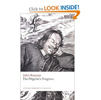
This falls in my top five as well, particularly the first half that deals with the main character, Christian. If you’re unfamiliar with the story, Pilgrim’s Progress is an allegory of the Christian life as Christian, the man, embarks from the City of Destruction and heads to the Celestial City. Along the way he encounters the likes of Talkative, Hopeful, Faithful and others. Bunyan wrote this while in prison for preaching the gospel. You’ll find your soul stirred.
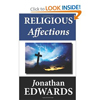
This is a classic of Jonathan Edwards, easily the greatest theologian that America has every produced. As some of the others above, not always the easiest to get through, but incredibly helpful. In it he deals with the issue of true faith and how it manifests itself in our lives. This is a topic that needs to be revisited in our day.
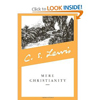
Of all the books above, this is the most accessible. Originally Lewis gave each chapter as a talk over the radio. They were later compiled and turned into a book. In it Lewis defends and explains the nature of Christianity. It is a helpful book for Christian and non-Christian alike. I highly recommend it. The closest modern day parallel is Tim Keller’s, The Reason for God.
In case you missed it, I also posted a number of other recommended books this past summer HERE.
